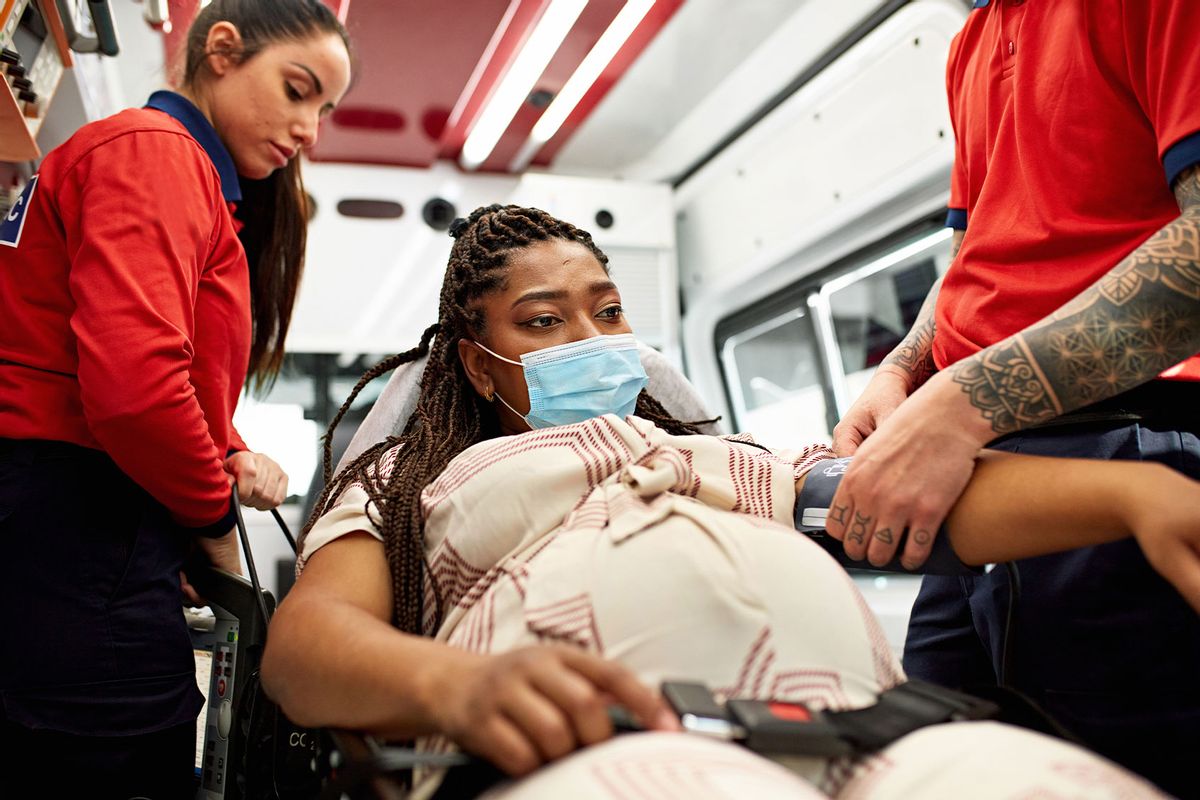On Thursday, The Supreme Court ruled that doctors are allowed to provide emergency abortions to stabilize a patient’s health and life, meaning Idaho’s near-total abortion ban does not take precedence over a federal law known as the Emergency Medical Treatment and Labor Act (EMTALA.)
The 6-3 opinion included three dissenting Justices Samuel Alito, Neil Gorsuch and Clarence Thomas, while three of the court's conservatives — Chief Justice John Roberts, and Justices Brett Kavanaugh and Amy Coney Barrett — sided with the three liberals — Justices Elena Kagan, Sonia Sotomayor and Ketanji Brown Jackson. The appeal from Idaho was dismissed as "improvidently granted" without considering the core issues in the case, returning it to the lower courts for further litigation.
"Today’s decision is not a victory for pregnant patients in Idaho. It is delay," Justice Brown Jackson wrote in her opinion. "While this Court dawdles and the country waits, pregnant people experiencing emergency medical conditions remain in a precarious position, as their doctors are kept in the dark about what the law requires."
“This decision is unconscionable," Planned Parenthood Federation of America President and CEO Alexis McGill Johnson said in a statement. "For nearly six months, as a direct result of the U.S. Supreme Court’s actions, Idahoans have been denied access to emergency abortion care. While access to emergency abortion care has been restored in Idaho for now, the court had the opportunity today to make clear that the federal EMTALA law protects pregnant patients’ access to emergency abortion care in every state. Instead, the court has kicked the can down the road, leaving access to emergency care for pregnant people across the country under threat.”
The ruling isn't entirely surprising given that the opinion was briefly posted on the court's website on Wednesday, June 26 before being taken down.
This is the second major abortion-related case that the U.S. Supreme Court heard this year, after unanimously voting to reject a challenge to mifepristone access, a common, safe and effective abortion drug.
Shortly after the Supreme Court overturned Roe v. Wade in June 2022, the U.S. Department of Health and Human Services stated EMTALA took priority over state laws. Under EMTALA, hospitals and emergency rooms were required to provide emergency abortions even where there were strict abortions laws — like Idaho and Texas. The Biden Administration even sued Idaho, claiming that the state's near-total ban was in direct conflict with the federal EMTALA law. But the state claimed that there wasn’t a conflict because technically it has a life-saving exception. Then in January, the Fifth Circuit Court of Appeals in Texas ruled that emergency rooms aren't required to perform health-saving abortions under EMTALA, which is when the case moved to the Supreme Court.
As Salon previously reported, justices appeared to be split on whether or not Idaho’s near-total abortion ban overrides EMTALA or not during the hearing, which took place on April 24, 2024.
Notably, EMTALA first came to light as a response to hospitals turning away uninsured pregnant people in active labor. Congress passed the law in 1986 and specifically included provisions mandating federally funded hospitals to accept a patient in active labor even if she doesn’t have insurance. President Ronald Reagan signed it into law. The purpose of EMTALA was to establish a nationwide baseline of emergency care that everyone is entitled to, regardless of where they live or their medical condition. Congress even included a preemption clause that said if any state law conflicts with EMTALA’s requirements, EMTALA overrides the state law.
“Through EMTALA, Congress protected the ultimate power of every pregnant person to decide what's best for themselves, their health and their pregnancies, including if that means ending the pregnancy,” Carrie Flaxman, a senior advisor at Democracy Forward, said at a press conference after the oral arguments in April. “And so the notion that the same language that was used to expand EMTALA’s protections for pregnant people somehow now carves them out of the law’s full protections defies logic.”
Want more health and science stories in your inbox? Subscribe to Salon's weekly newsletter Lab Notes.
Legal experts have repeatedly told Salon that if the Supreme Court ruled that EMTALA doesn’t cover life and health-saving abortions, it would essentially make pregnant women “second-class citizens” in America’s emergency rooms.
“This case could radically change how emergency medical care is practiced in this country and could make pregnant people second-class citizens in America's emergency rooms,” Alexa Kolbi-Molinas, deputy director of the ACLU Reproductive Freedom Project, told Salon. “What I think we are looking at here is the fact that overturning Roe v. Wade was just the beginning, and these extremist politicians are using every tool at their disposal in their campaign to ban abortion nationwide.”
We need your help to stay independent
The precedent could have a dangerous ripple effect.
“Practitioners are going to be afraid to practice, they're going to be afraid to treat people, they're going to be working under terrible conditions of wondering if they're going to get fined,” Azaleea Carlea, legal director at Legal Momentum, told Salon. “If they're going to go to jail, if they're going to have to wait for someone to be dying before they can help them.”
Read more
about abortion rights
- Will Roe v. Wade ever be restored? How certain legal challenges could reinstate abortion protections
- How the Texas trial changed the story of abortion rights in America
- In Wisconsin, women’s health care is constricted by an 1849 law. These doctors are aghast
- Groups sue to overturn Idaho "abortion trafficking" law targeting teens
- Idaho drops panel investigating pregnancy-related deaths as U.S. maternal mortality surges



Shares